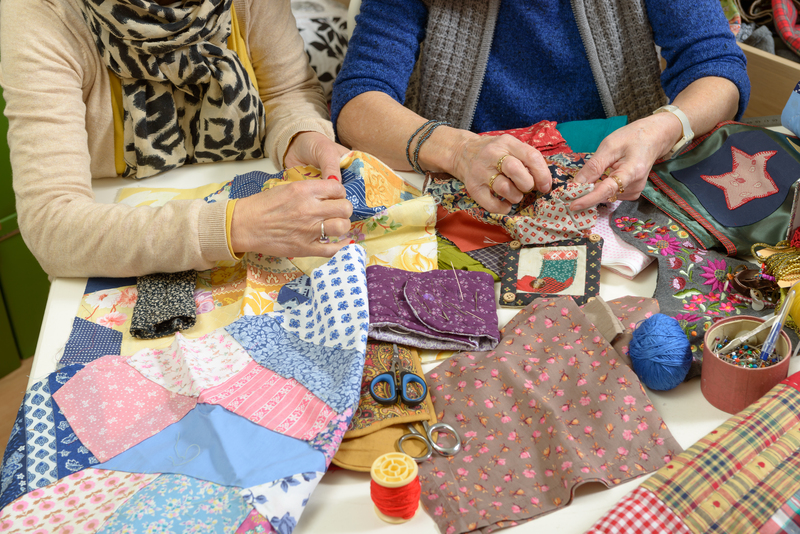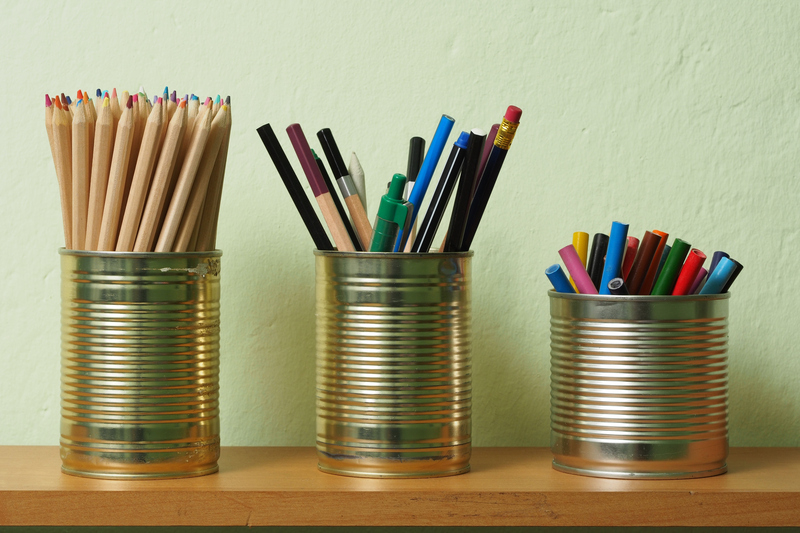Spend Less on Getting Rid of Large Household Waste
Dealing with bulk household items like old furniture, appliances, mattresses, or carpets often comes with hefty removal costs. If you're looking to spend less on getting rid of large household waste, you're not alone. Every year, homeowners face the challenge of removing bulky waste in a cost-efficient, responsible, and environmentally friendly manner. In this comprehensive guide, you'll discover savvy tips and clever alternatives to help you save money while clearing out unwanted items.

Understanding Large Household Waste
Before deciding on disposal methods, it's crucial to know what constitutes large household waste. Often referred to as bulk waste or bulky items, these are the items too big to fit in your regular trash bin. Examples include:
- Sofas and couches
- Mattresses and box springs
- Tables, chairs, and dressers
- Large appliances (refrigerators, washing machines, stoves)
- Outdoor furniture and BBQ grills
- Carpets and rugs
- Exercise equipment
Traditional disposal methods, like municipal pickup or private junk removal services, can be expensive. However, with the right approach, you can reduce costs of household item removal and even help the environment in the process!
Smart Strategies to Get Rid of Bulky Household Waste Affordably
1. Take Advantage of Municipal Free Bulk Collection Days
Many city councils offer free or subsidized bulky item collection days. You simply schedule a pickup or bring items to a municipal drop-off location. Here's how to maximize these programs:
- Check your city's waste management website for collection dates and accepted items.
- Plan ahead to accumulate several items, reducing the number of trips or pickups you need.
- Follow all guidelines to avoid penalties or rejected pickups.
Tip: Some cities have separate days for electronics and appliances, so check the calendar carefully!
2. Donate Gently Used Items
One of the best ways to spend less on getting rid of large household waste is by giving items a new life. Many charities and non-profits accept large donations of furniture, appliances, and more. Here's how donation saves money:
- Charities often offer free pickup services for big items.
- You may qualify for a tax deduction for donated goods.
- Your items help families in need or support local programs.
Where to donate large household waste:
- Habitat for Humanity ReStores
- Salvation Army
- Goodwill
- Local community churches or shelters
Always check with the organization to confirm they accept large items and inquire about collection services.
3. Sell or Give Away Items Online
Turning unwanted household goods into cash is the most rewarding way to save money while decluttering. Numerous platforms allow you to list bulky items for free or at a low cost:
- Facebook Marketplace
- Craigslist
- OfferUp
- Nextdoor (great for neighbors looking for free furniture!)
List items as free for pickup or offer at a bargain price. This method often results in someone picking up the item directly from your home, saving you disposal fees and time. Always follow safe transaction guidelines when arranging pick-ups.
4. Take Items to the Local Recycling Center
Many recycling facilities accept furniture, metal appliances, and even mattresses, often for a nominal fee or no charge at all. Advantages of using your local recycling center include:
- Proper disposal, reducing landfill impact
- Lower fees compared to junk removal companies
- Some centers offer free drop-off for certain items, especially electronics and scrap metal
Contact your nearest recycling facility for accepted items, fees, and sorting requirements. Some centers also host special recycling events for hard-to-dispose of items.
5. Break Down and Dispose Small Parts in Regular Trash Over Time
Bigger isn't always better, especially for the trash can! If landfill regulations allow, disassembling sofas, cabinets, or other bulky waste into smaller parts can save on removal costs. Here's how to do it wisely:
- Check local rules--some municipalities restrict curbside disposal of certain materials.
- Use a saw, pliers, or other tools to separate components like wood, fabric, and metal.
- Place pieces in the weekly trash over multiple pickups (always be mindful of weight limits).
Tip: Salvage scrap metal and take to a recycler--some centers pay cash for metal items.
6. Rent a Dumpster or Shared Waste Bin (Cost-Sharing Option)
If you have a lot of large household waste or are doing a big home cleanout, renting a dumpster can be cost-effective, especially if you split the price with neighbors or friends. Here's how to minimize your dumpster rental costs:
- Compare rental rates and always ask about weight limits and extra fees.
- Choose the smallest dumpster that fits your needs.
- Coordinate with relatives or neighbors to share the space and share the cost!
Note: Some materials (like mattresses or appliances) may incur surcharges, so confirm with your provider first.
7. Use Community "Bulk Trash" Events and Free Disposal Days
Many cities host annual or semiannual events where residents can bring bulk household waste (including construction debris, old electronics, and large items) for free or for a low fee. These events are ideal for one-off cleanouts. Check your city or county waste department calendar for details. Timing your decluttering with these events can lead to significant savings.
Creative Alternative Ways to Save on Bulky Item Disposal
Upcycle or Repurpose Old Items
Before sending furniture or large items to the landfill, consider giving them new life. Upcycling or repurposing saves disposal fees and can be a fun, sustainable project. For example:
- Turn old drawers into under-bed storage or bookshelves.
- Use a damaged sofa frame for garden seating or patio furniture.
- Transform large cardboard boxes or pallets into playhouses or compost bins.
Look online for "DIY upcycling" inspiration and tutorials!
Contact Scrap Dealers or Junk Haulers Directly
If you have metal appliances, exercise equipment, or scrap items, contact local scrap dealers who may pick up or pay for your items. Similarly, some independent junk haulers offer competitive rates for hauling large items, particularly if you have them already placed curbside or in your driveway. Compare quotes and negotiate--prices are often flexible!
Borrow or Share Tools for Appliance/Furniture Disassembly
Breaking down items into smaller, manageable parts can significantly lower disposal costs. If you don't own the necessary tools (saws, screwdrivers, pliers), ask friends or neighbors to borrow, or rent from a tool library for minimal fees. Many communities now have tool-sharing programs that help you save even more on bulk waste removal.
Important Money-Saving Tips for Large Household Waste Removal
- Plan ahead. Don't wait until the last minute, as emergency junk removal is costly.
- Group items together for pickup or disposal to reduce per-item charges.
- Ask about discounts--seniors, veterans, or bulk customers often qualify for special rates.
- Check if your local government offers vouchers or coupons for bulk waste drop-off.
Pro Tip: If hiring a professional removal service, get written estimates from at least three companies--and read reviews!
What NOT to Do with Large Household Waste
To avoid fines or environmental harm, never:
- Leave items in alleys, public spaces, or illegal dump sites.
- Burn mattresses or upholstered furniture (can release toxic fumes).
- Dump electronics or appliances in the trash without checking for hazardous components.
Always handle bulky waste responsibly and in accordance with local regulations.
Quick Reference: How to Spend Less on Getting Rid of Oversized Household Items
- Check free city pickup and recycling events
- Donate or sell usable items
- Break down items for smaller trash loads
- Share dumpster or disposal costs
- Contact charities or scrap dealers for pickups
- Repurpose, reuse, or upcycle when possible

Frequently Asked Questions (FAQ) on Cheap Bulky Waste Disposal
1. What is the cheapest way to get rid of large items?
Using free municipal bulk waste pickup services, donating items, or listing them as free pick-up online are among the most budget-friendly options.
2. Can I take large household waste to the dump myself?
Yes, many municipal dumps or transfer stations allow residents to drop off bulky items. Fees vary by location, but this is often cheaper than curbside pickup or private haulers.
3. Are there items I can't put out for bulk trash pickup?
Most programs exclude hazardous waste, liquids, construction materials, and sometimes electronics or appliances containing refrigerants.
4. What can I do if my city doesn't offer free bulk waste removal?
Try local charities, recycling centers, or online marketplaces. Coordinate with neighbors to split costs of a private hauler or dumpster.
Conclusion: Save Money and the Environment While Disposing of Large Household Waste
Clearing out unwanted furniture, appliances, or bulky items doesn't need to drain your wallet--or harm the environment. By exploring free and low-cost disposal programs, prioritizing reuse and recycling, and thinking creatively, you can spend less on getting rid of large household waste than ever before. Remember: planning ahead, leveraging community resources, and responsible disposal are the keys to smart, affordable cleanouts. Happy decluttering!